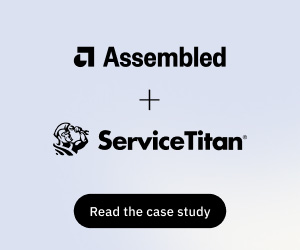SupportZebra explores how medical call centre companies solve critical communication challenges in healthcare.
Poor communication in healthcare isn’t just frustrating; it can be dangerous. Missed appointments, unclear instructions, and long response times leave patients feeling neglected and providers overwhelmed.
When these issues accumulate, they impact trust, patient outcomes, and even your bottom line. If your team is constantly playing catch-up with calls and follow-ups, it’s a sign that your current system isn’t working.
That’s where professional medical call centre companies come in. By stepping in as a seamless extension of your team, they ensure that every patient interaction is handled promptly, accurately, and with care, allowing your staff to focus on what matters most: delivering quality care.
What Communication Problems Do Medical Call Centre Companies Solve?
Medical call centre companies address a wide range of issues that healthcare providers often struggle with, including:
- Long hold times for patients trying to reach their providers
- Missed calls resulting in lost appointments or delayed care
- Poor documentation and follow-up on patient inquiries
- Confusion around scheduling, prescriptions, or billing
- Inefficient triaging of urgent medical issues
These breakdowns can erode patient trust and result in lower satisfaction scores. Call centers help solve these problems by ensuring a structured, professional process for all incoming and outgoing patient communications.
How Do Call Centres Improve Patient Engagement?
One of the key benefits of working with a medical call centre is the improvement in patient engagement. When patients feel heard and supported, they are more likely to follow care plans and return for future treatment.
Medical call centers boost engagement by:
- Offering 24/7 support so patients can call outside regular business hours
- Using trained healthcare call agents who communicate clearly and compassionately
- Following up with patients post-visit or post-discharge to reinforce care plans
- Sending reminders about medications, lab tests, and appointments
- Providing multilingual support for patients with different language needs
These services create a more connected and personalized patient experience, even outside the clinic or hospital.
Why Is Real-Time Communication Important in Healthcare?
Timely communication in healthcare can make a difference between a manageable condition and a medical emergency. Medical call centre companies help providers respond quickly and appropriately to time-sensitive concerns.
Here’s how they enable real-time responsiveness:
- Triage protocols to prioritise urgent cases for immediate action
- Secure communication tools for fast message delivery to providers
- Integrated systems that log real-time data into electronic health records (EHRs)
- Immediate confirmation of appointments, test results, and referrals
When patients know they can reach someone quickly, it builds trust and reduces anxiety, an essential factor in managing chronic conditions or post-surgical recovery.
What Are the Benefits of Outsourcing Healthcare Communication?
Outsourcing to a medical call centre company brings more than just cost savings. It enables healthcare teams to focus on clinical care without being burdened by administrative communication.
Key benefits include:
- Scalability – Easily handle surges in call volume without overwhelming in-house staff
- Cost Efficiency – Reduce the need for full-time front-desk or admin teams
- Consistency – Ensure that every patient call is answered professionally, with standardized messaging
- Availability – Offer 24/7 service, even during holidays and after-hours
- Technology Integration – Use of advanced call-routing and CRM systems for smooth workflows
This streamlined support helps healthcare organisations run more efficiently while offering better patient service.
How Do Medical Call Centres Maintain HIPAA Compliance?
Handling sensitive health information requires strict adherence to privacy laws, especially the Health Insurance Portability and Accountability Act (HIPAA). Reputable medical call centers have established processes to ensure full compliance with relevant regulations.
These include:
- Secure phone and messaging systems with end-to-end encryption
- Ongoing training for agents on HIPAA protocols
- Role-based access to patient data, limiting unnecessary exposure
- Detailed audit logs for every call or data access event
- Regular risk assessments and updates to security infrastructure
By following these practices, medical call centres protect patient data while maintaining efficient communication workflows.
What Technologies Do Medical Call Centres Use to Improve Communication?
Modern medical call centres leverage advanced tools and software to enhance communication accuracy, speed, and reliability. These technologies enable patients to connect with the correct information at the right time.
Common tools include:
- Interactive Voice Response (IVR) – For routing calls and automating simple queries
- CRM and EHR Integration – So agents have real-time access to patient records
- AI-Powered Chatbots – For handling routine inquiries and appointment setting
- Call Recording and Analytics – To monitor quality and identify communication trends
- Omnichannel Support – Covering phone, email, SMS, and live chat
These tools reduce wait times, eliminate communication silos, and help healthcare providers maintain a strong connection with their patients.
How Do Medical Call Centres Handle Multilingual Patient Support?
Clear communication is crucial for ensuring patient safety and satisfaction, particularly in diverse communities. Medical call centres often provide multilingual support to ensure that language barriers don’t compromise care.
This is achieved through:
- Hiring multilingual agents familiar with medical terminology
- Using real-time translation services for less common languages
- Creating custom scripts in different languages for common scenarios
- Offering language-specific hotlines for high-demand patient groups
With these services, healthcare providers can serve broader populations and meet the standards of cultural competency.
How Can Medical Call Centres Reduce No-Shows and Missed Appointments?
Missed appointments cost healthcare practices time and money and often lead to worse health outcomes for patients. Medical call centres help reduce no-shows by managing proactive patient communication.
Their strategies include:
- Automated appointment reminders via text, call, or email
- Real-time rescheduling for patients who cancel
- Education on the importance of follow-up care
- Personalized outreach for high-risk or frequent no-show patients
This kind of ongoing outreach helps patients stay on track while keeping clinic schedules optimized.
What Types of Providers Benefit Most from Medical Call Centres?
While any healthcare provider can benefit, certain types of practices and facilities may see an even greater impact from partnering with a medical call centre company.
These include:
- Primary Care Clinics – Managing high call volumes and routine appointments
- Specialty Practices – Providing pre-visit instructions and insurance support
- Hospitals and Urgent Care – Offering after-hours triage and admissions support
- Home Health Services – Coordinating schedules and answering care questions
- Mental Health Providers – Managing sensitive communication with empathy and discretion
Medical call centres tailor their services to the unique needs of each type of provider, providing scalable, industry-specific support.
What Should You Look for When Choosing a Medical Call Centre Partner?
Not all call centre companies are the same. When evaluating a potential partner, healthcare providers should consider:
- Experience in the healthcare industry
- HIPAA compliance and security protocols
- Availability of 24/7 and multilingual support
- Ability to integrate with your existing systems
- Transparent reporting and performance metrics
- Positive client reviews and healthcare-specific references
Choosing the right partner means gaining a reliable extension of your care team, one that prioritizes your patients’ experience as much as you do.
Author: SupportZebra
Reviewed by: Megan Jones
Published On: 18th Aug 2025
Read more about - Guest Blogs, SupportZebra




































